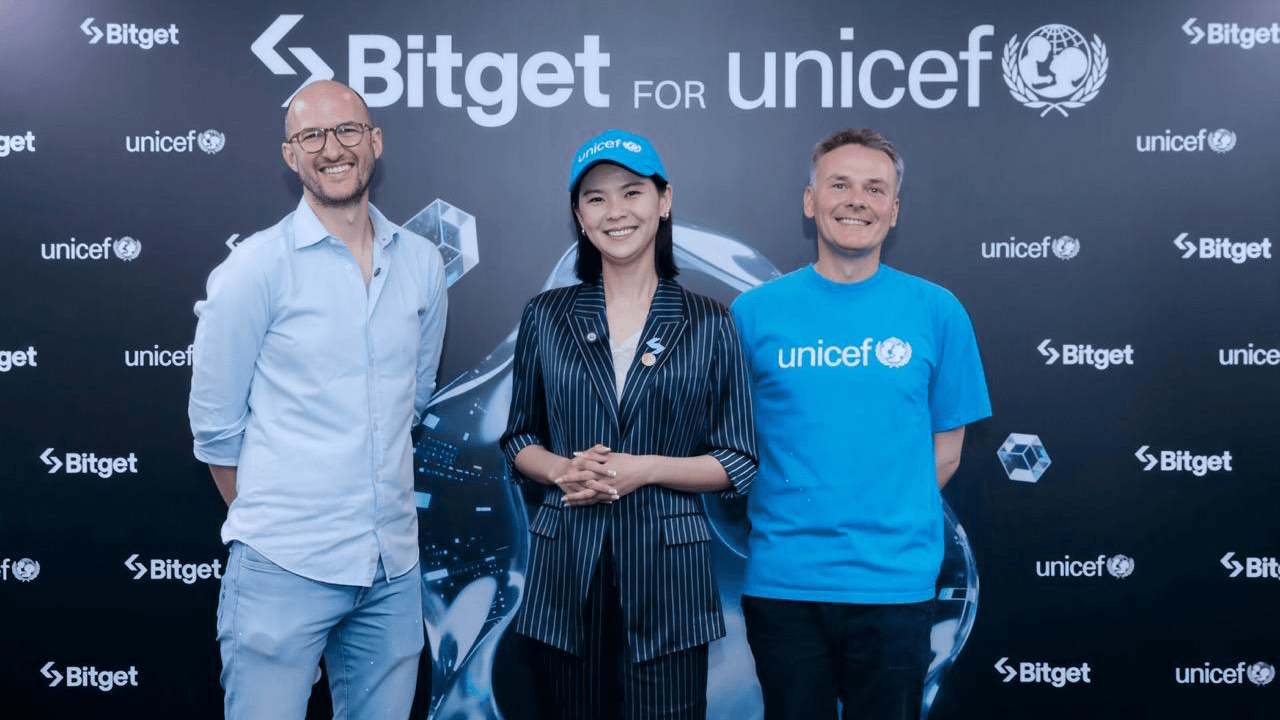On Monday, Bitget, the global cryptocurrency exchange, announced a three-year partnership with UNICEF Luxembourg to advance digital skills and blockchain literacy among young people, particularly adolescent girls.
The collaboration falls under UNICEF’s Game Changers Coalition, a broader initiative led by its Office of Innovation, which seeks to bridge the global digital divide by promoting inclusive access to next-generation technologies.
The countries involved in this rollout include Armenia, Brazil, Cambodia, India, Kazakhstan, Malaysia, Morocco, and South Africa.
Bitget and UNICEF partnership objective
The project aims to bridge the gender digital divide by equipping young women with essential skills in science, technology, engineering, and math (STEM) and blockchain.
According to Bitget CEO Gracy Chen, the focus is on creating scalable solutions to integrate blockchain education into global curricula.
“Our focus is on equipping adolescent girls with STEM skills to help close the gender skills gap,” Chen told Cointelegraph.
She emphasised the importance of leveraging Web3 expertise to ensure the training remains practical and accessible.
The initiative is backed by Bitget’s $10 million Blockchain4Her program, which supports women’s digital literacy and financial independence through mentorship, funding, and tailored educational resources.
Also, the company will connect UNICEF with leading blockchain protocols and Web3 developers to provide mentorship and technical insights.
Part of the key component of the partnership involves Bitget Academy, the exchange’s educational arm, collaborating with UNICEF to design an interactive blockchain training module.
The program will combine online and in-person sessions, using video game creation as a tool to teach blockchain fundamentals.
“Gamification of learning breaks down complex topics to their core,” Chen explained. “Roughly 3.3 billion people worldwide play games—it’s only natural for us to learn best when our environment is interactive and supportive.”
Addressing Africa’s digital divide
The inclusion of African nations (Morocco and South Africa) highlights the urgent need to address digital inequality in low- and middle-income regions.
Due to limited internet access and digital skills, adolescent girls in Africa often miss out on economic opportunities compared to their male peers.
With 90 percent of jobs now requiring digital competencies, initiatives like Bitget’s could play a pivotal role in levelling the playing field.
The company joins UNICEF’s Game Changers Coalition alongside major organisations like the Micron Foundation, Women in Games, and the Global Video Game Coalition. Together, the alliance aims to empower 1.1 million girls with tech and blockchain skills by 2027.
Furthermore, Bitget, using its social platform X, framed the partnership as more than just an educational initiative, stating,
“This isn’t just education—it’s ecosystem building. Together, Bitget and UNICEF are shaping a future where Web3 works for everyone.”
The program marks UNICEF’s first initiative in gamified blockchain education, signalling a shift toward innovative and engaging methods to teach emerging technologies.
For Bitget, the collaboration reinforces its commitment to promoting gender inclusivity in the blockchain space while addressing systemic barriers to digital literacy.











